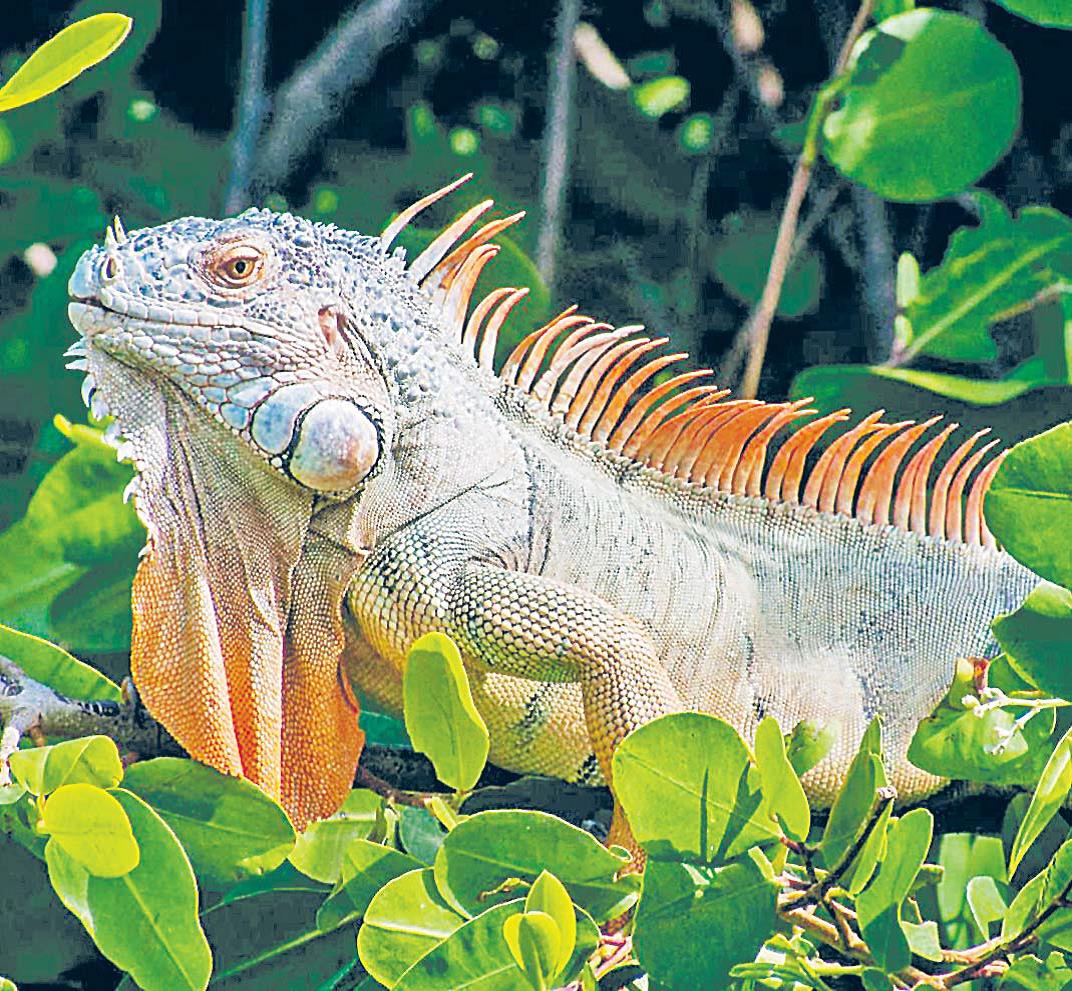The Bio-security Authority of Fiji (BAF) is strengthening inter-island borders and heightening surveillance along areas near Taveuni in a bid to stop the spread of the giant invasive iguana (GII).
BAF Invasion Alien Species project coordinator Tuverea Tuamoto said a foreign landowner of Qamea had released 10 juvenile GII on his property and the iguanas had since spread to other nearby islands.
“The original Qamea animals spread rapidly and are now reported in Qamea, Matagi and Laucala,” he said.
Mr Tuamoto said the exact distribution for Laucala island was unknown as it is privately owned and operated as an exclusive resort.
He said GIIs could lay clutches of between 20 and 45 eggs and that ongoing monitoring and surveillance operations by BAF in Qamea were targeting the gravid females and egg nesting areas to prevent the increasing population of GII.
“The threat of GII spreading to other nearby islands is imminent, however, BAF is working with local communities to be their eyes and ears on the ground to report sightings of GII in their areas.
“BAF is also strengthening inter-island borders and also heavily undergoing surveillance along areas closest to Taveuni to prevent incursion into new areas.”
Sia Mitchell, a villager of Qamea, said they could count about 60-80 eggs maximum in one hatch and the villagers were wary of overpopulation.
“You know when we kill one female American iguana and then we gut them and count the eggs, it is just unbelievable,” Ms Mitchell said.
“The more you hunt them, the more they are there because they multiply real fast.”
She said the first GII was seen by her children in 2007.
“The first one was seen by my 23-year-old daughter was eight years old then.
“That’s when we were living in Yaregau, a private property owned by the Qamea Resort owners at that time.
“My kids were on their way to the beach to hop into a boat to head for school and that’s when they came across the first iguana that was to be found.”
She said since then, villagers would come across and one or two of those creatures were sitting on rocks sunning themselves.
“It’s all over Qamea, and people all over the island have found one or two.”
According to her, before BAF came to the island, they would kill them because they knew it was not a normal iguana.
“If you catch them, they will try to hit you with their tail, but it doesn’t have anything sharp that could hurt you.
“Even with claws, they don’t try to claw you or what.”
However, she said they were a nuisance as they eat leafy vegetables from their plantations and seafood as well.
“One can tell that they’re around their property when you see all these chewed up leaves like you put in a blender and you blend them just to give you that mulch.
“And you know, they go underwater so they eat seafood as well, especially shellfish.
“We planted cabbages, they ate it and they even go for the very soft leaves on the bele plant.”
Ms Mitchell said there were villagers who would cook GIIs.
“They kind of heard about it so they make curry dish out of it and when you ask people about the taste of something they’re eating for the first time, they’ll say it tastes like chicken.
“I’ve never tasted it, but I’ve heard that you know, they make curry dish out of it and they ate it.”
She said it was through workshops conducted by BAF officials that they learned more about GIIs, including their differences, adaptation and their need for sunlight as it gives them energy.
BAF is requesting the public, especially communities in the affected areas, to cooperate with them and help stop the spread of GII.
Members of the public are also advised not to consume GII meat or attempt to breed them.
Sighting of GII can be reported to the Giant Invasive Iguana short code 5995, via email on: info@baf.com.fj or visit the BAF website at www.baf.com.fj





